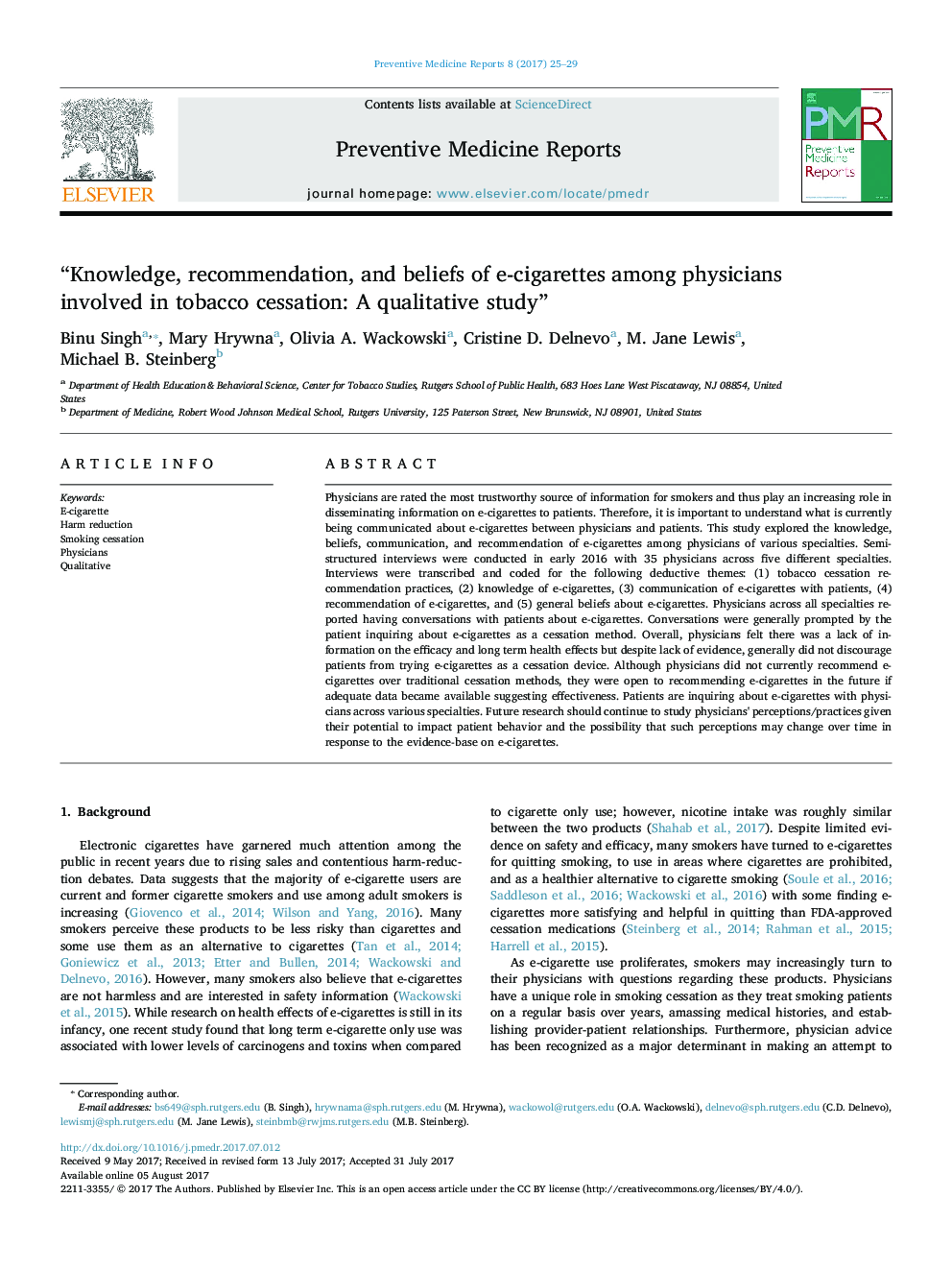| Article ID | Journal | Published Year | Pages | File Type |
|---|---|---|---|---|
| 5723604 | Preventive Medicine Reports | 2017 | 5 Pages |
â¢Physicians across specialties are having conversations with patients about ecigs.â¢Generally did not discourage patients from trying ecigs as a cessation device.â¢Physicians open to recommending ecigs for cessation in the future.â¢Adolescent use major cause of concern for physicians.
Physicians are rated the most trustworthy source of information for smokers and thus play an increasing role in disseminating information on e-cigarettes to patients. Therefore, it is important to understand what is currently being communicated about e-cigarettes between physicians and patients. This study explored the knowledge, beliefs, communication, and recommendation of e-cigarettes among physicians of various specialties. Semi-structured interviews were conducted in early 2016 with 35 physicians across five different specialties. Interviews were transcribed and coded for the following deductive themes: (1) tobacco cessation recommendation practices, (2) knowledge of e-cigarettes, (3) communication of e-cigarettes with patients, (4) recommendation of e-cigarettes, and (5) general beliefs about e-cigarettes. Physicians across all specialties reported having conversations with patients about e-cigarettes. Conversations were generally prompted by the patient inquiring about e-cigarettes as a cessation method. Overall, physicians felt there was a lack of information on the efficacy and long term health effects but despite lack of evidence, generally did not discourage patients from trying e-cigarettes as a cessation device. Although physicians did not currently recommend e-cigarettes over traditional cessation methods, they were open to recommending e-cigarettes in the future if adequate data became available suggesting effectiveness. Patients are inquiring about e-cigarettes with physicians across various specialties. Future research should continue to study physicians' perceptions/practices given their potential to impact patient behavior and the possibility that such perceptions may change over time in response to the evidence-base on e-cigarettes.
